ENGLISH
What is our aim with English at Springfield?
Reading
We want children to enjoy and think positively about reading and identify as readers that are part of a wider reading community. We also want them to be able to read widely, relate to texts and take part in and experience high quality discussions about books with their teachers and peers. We want them to access texts that enable all children to experience a broad range of contemporary and heritage narrative, non-fiction and poetry. Additionally, we want them to explore moral, ethical, cultural and social issues, BAME authors and protagonists as well as strong female role models.
Year 3

Year 4

Year 5

Year 6

On their journey through the school, they will gain skills and knowledge (including phonemic awareness) so that they will reach a point where they can read fluently and that decoding is automatic. The children will learn about vocabulary etymology and morphology in lessons across the curriculum so that they can unlock unknown words. We also believe every child is a reader and have developed a clear reading pathway to support those who need fluency, phonics or comprehension based support.
Writing
Writing is a crucial part of our curriculum and by the end of Year 6, we intend our children to have developed a love of writing and to be able to express their thoughts and ideas clearly and creatively through the written word. We want them to be able to consider purpose and audience so that they are writers who think and make choices. We also want to create writers who can re-read, edit and improve their own writing and to be able to confidently use the essential skills of grammar, punctuation and spelling.
We set high expectations for our children to take pride in their work and have a fluent, cursive handwriting style alongside allowing their imagination to flourish.
What does this look like in the classroom?
Reading
At Springfield Junior School, there are daily reading lessons which follow the CUSP curriculum. Every lesson contains vocabulary instruction and reading fluency before exploring a key competency which is modelled to the children. They attempt this in a low stakes way before applying it independently and trying a challenge that sophisticates their thinking.
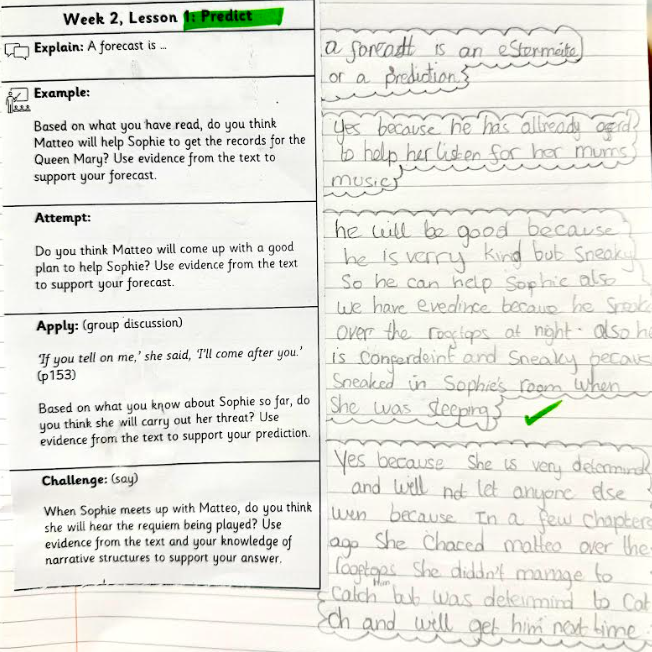
We have also been continuing to invest in our school library. Our front facing non-fiction and "Little People" sections have raised the profile of non-fiction. Our quick read section is very popular and allows children to experience success in reading, grow in confidence and explore a wide range of topics. We have added to this section so that it includes more challenging books.
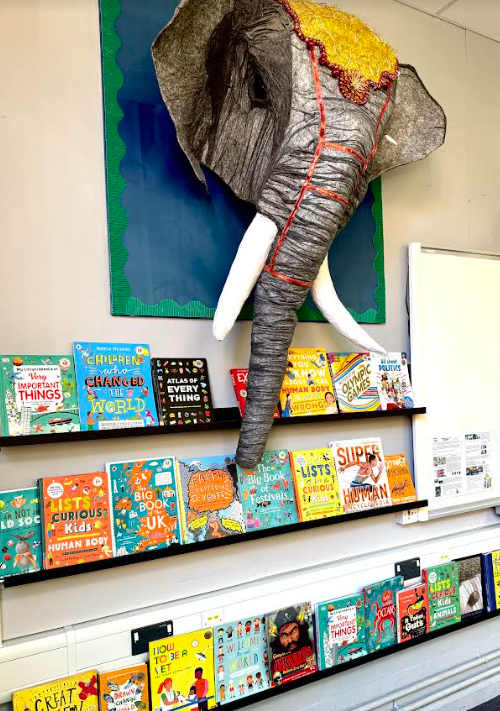
You may also see children using iPads to take quizzes that are part of "Accelerated Reader." This system allows us to monitor children's independent reading. Every child has an appropriate level of challenge through their own personal reading target. Children are encouraged to read in their ZPD although they may read below out of interest or above if they have support. We also celebrate success with our Word Millionaires and half termly reading raffle for those who have met their targets in which a child can be awarded with a book of their choice.
Reading Pathway at Springfield
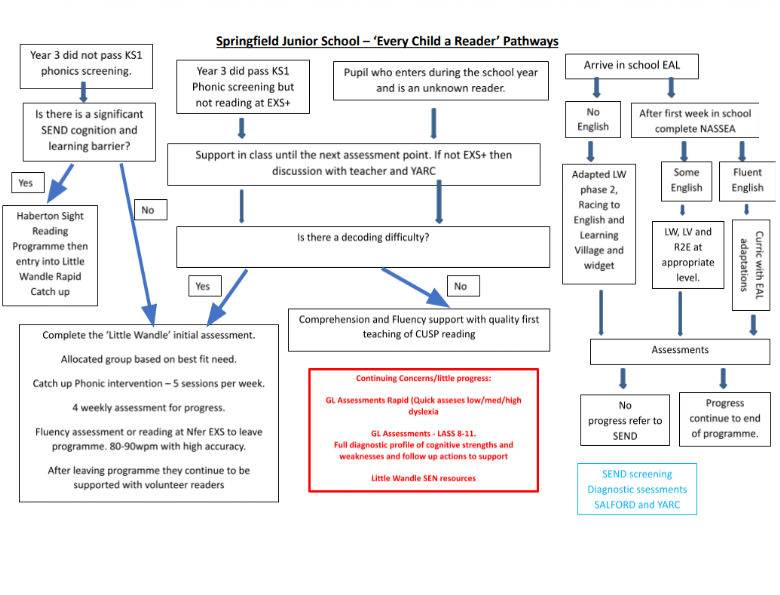
Writing
Writing is taught through the CUSP curriculum, which is carefully structured to ensure pupils build upon prior knowledge to master writing and develop their ideas. Expert subject knowledge is carefully woven into each writing unit, giving teachers the opportunity to teach and rehearse key knowledge and skills before children then apply this learning to meaningful, extended pieces of writing.
This careful architecture of the curriculum ensures pupils revisit different writing genres twice each year, to maximise the opportunities for progression and consolidate their skills, so they become writers for life.
It is also designed with links to history, geography and science lessons so that the pupils can build upon and develop schema which they can then use and apply in creative ways in their writing.
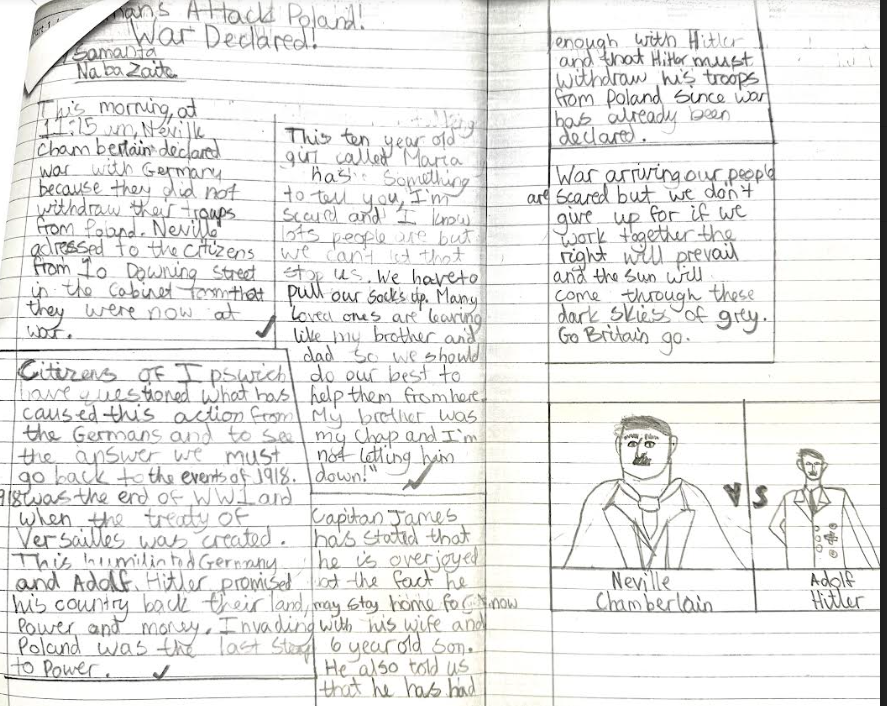
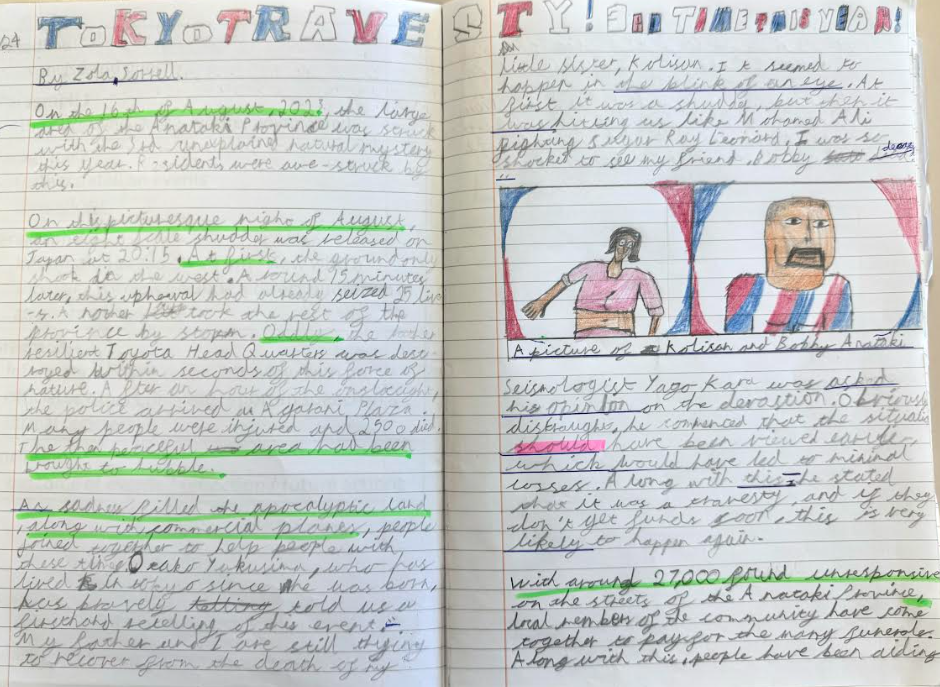
The CUSP spelling programme is used alongside the Reading and Writing curriculum. This focuses on the teaching of Spelling concepts and etymology and builds in the opportunities to apply this knowledge into their writing.
Within English sessions we aim to support pupils by:
*Promoting pupil voice
*Displaying learning, skills and vocabulary, in the classroom
*Adapting our teaching to meet the needs of all children
*Providing a diverse and creative curriculum which addresses the needs of all
*Building aspiration by creating opportunities for children to have wider experiences; eg visits, trips
What are the outcomes for learners?
Our outcomes are assessed using NFER Reading Assessments, CUSP Ingredients for Success and end of year writing key performance indicators. This information is stored on Arbor.
